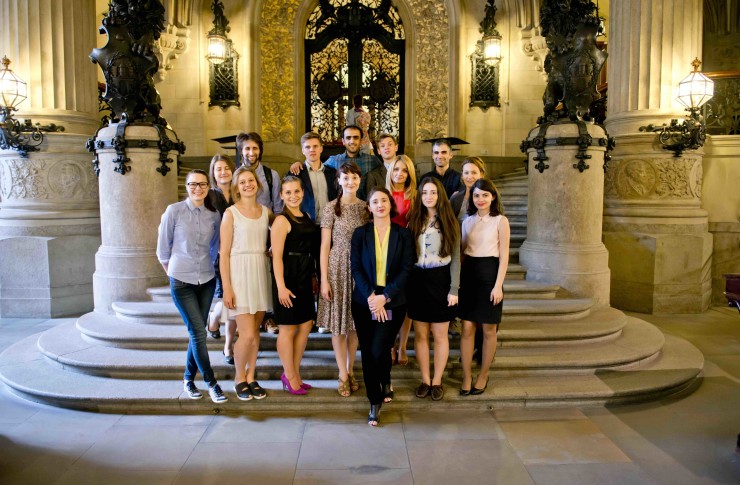
Journalism means collecting, evaluating and publishing information, and this definition also applies in the digital world. Each technical advance opens up new possibilities for research and publishing.
To take advantage of these opportunities, journalists must constantly build and update their skills. And they have to cope with a dangerous risk – the lack of digital security. Journalists will have to adapt to this – and repeatedly because of ever shorter innovation cycles.
Against this background, the Interlink Academy for International Dialog and Journalism is offering the ‘Digital Journalism for Eastern Europe’ blended-learning training program. Participating journalists from Eastern Europe are given an opportunity to update their technical skills and discuss current media ethics issues. Networking and sharing the newly gained knowledge with their colleagues back home will also play an important role in the program.
Skills taught
By participating in the program, Fellows acquire skills in the following fields:
- Investigative research
- Journalistic forms of presentation on the mobile internet
- Technical production of web content
- Filming and editing web video
- Digital security
- Attendance and E-Learning“Digital Journalism for Eastern Europe” is a blended-learning program. It consists of three stages: two attendance phases in Germany and one e-learning phase. During their two study stays in Hamburg and Berlin, the participants acquire new journalistic skills in intensive sessions of lectures, practical group work, discussions and visits to innovative working newsrooms, all supported by the teaching staff.

These attendance phases are separated by an e-learning phase during which the Fellows put into practice what they learnt at the Interlink Academy and work on journalistic assignments as well as participate in so-called webinars (virtual lectures) in their familiar working and living environments at home. The e-learning phase requires an average time commitment of 8 hours a week. After the end of the course, the Interlink Academy remains in close contact with the participants through its Alumni and mentoring services.
- 16 August to 28 August 2015: Attendance phase in Hamburg (Stage1)
- 29 August 2015 to 12 November 2015: E-learning phase / Participants study and work in their home countries with support via Interlink’s e-learning platform (Stage 2)
- 13 November to 19 November 2015: Attendance phase in Berlin (Stage 3)
Trainers
Courses at the Interlink Academy are run by highly specialized lecturers and trainers from Germany and abroad who have considerable experience with international study groups. Great attention is paid to the journalistic expertise of lecturers as well as their experience as educators.

